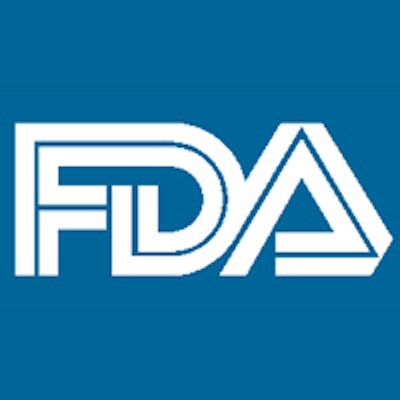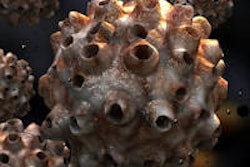
The U.S. Food and Drug Administration (FDA) has approved a human papillomavirus (HPV) DNA test for women 25 and older that can be used to determine whether these women should have additional diagnostic testing for cervical cancer. The test can also provide information about a patient's risk for developing cervical cancer in the future.
HPV is best known for causing cervical cancer, but it is also the culprit behind many cancers of the oral cavity, throat, anus, and genitals. Rates of HPV-linked cancers have been increasing: Nearly 13,000 new cases of oral and oropharyngeal cancers were reported in 2009, the vast majority in men, according to the National Cancer Institute.
“[The FDA] approval offers women and physicians a new option for cervical cancer screening.”
The cobas HPV test detects DNA from 14 high-risk HPV types using a sample of cervical cells, according to the FDA. The test specifically identifies HPV type 16 (HPV16) and HPV type 18 (HPV18), while also detecting 12 other types of high-risk HPVs. Genital HPVs are a group of more than 40 related viruses and, according to the Centers for Disease Control and Prevention (CDC), are the most common sexually transmitted infections. Fourteen high-risk HPV types are associated with cervical cancer.
Progress is being made against cancer in general, but there are only two areas in which cancer is on the rise in the U.S. -- cancers related to obesity and those related to HPV, according to a recent National Cancer Institute report.
While the incidence of head and neck cancer has been steadily declining, studies show that the rates of oropharyngeal squamous cell carcinoma (OPSCC) are steadily increasing, a phenomenon explained by the rise in HPV-positive OPSCC. About 8,400 Americans are diagnosed annually with HPV-related oropharyngeal cancer, according to the CDC. HPV-positive OPSCC tends to affect younger, nonsmoking men and patients with more extensive sexual history. And research shows that patients with HPV-positive OPSCC have a more favorable prognosis and quality of life than those with HPV-negative OSPCC.
Cobas HPV test
If a woman tests positive for HPV16 or HPV18, based on results of the cobas HPV test, they should have a colposcopy, which illuminates and magnifies the cervix so physicians can directly observe the cervical cells. If a patient tests positive for one or more of the 12 other high-risk HPV types, she should have a Pap test to determine the need for a colposcopy, the FDA advised.
Along with a patient's screening history and risk factors, healthcare professionals should use the cobas HPV test results together with other information, such as current professional guidelines.
The FDA approval "offers women and physicians a new option for cervical cancer screening," said Alberto Gutierrez, PhD, director of the Office of In Vitro Diagnostics and Radiological Health at the FDA's Center for Devices and Radiological Health. "Roche Diagnostics conducted a well-designed study that provided the FDA with a reasonable assurance of the safety and effectiveness when used as a primary screening tool for cervical cancer."
The FDA first approved the cobas HPV test in 2011 in conjunction with or as a follow-up to a Pap test. The new FDA approval now includes use as either a cotest or as a primary cervical cancer screening test, however; there is no change to current medical practice guidelines for cervical cancer screening, which are developed, reviewed, and modified by groups other than the FDA.
For most patients, a high-risk HPV infection does not cause any health problems and goes away on its own. About 10% of women infected with high-risk HPV develop a persistent infection, which may put them at risk of cancer. Virtually all cervical cancers are caused by HPV infections, with just HPV16 and HPV18 responsible for approximately 70% of cervical cancers.
A study of more than 40,000 women 25 years and older undergoing routine cervical exams provided the data for this approval. In this study, women who had a positive Pap test or whose cervical cells screened positive for HPV, as well as a subset of women whose Pap and HPV tests were both negative, underwent a colposcopy and cervical tissue biopsy. Study data, which included three years of follow-up on women who underwent a colposcopy, showed that the cobas HPV test is safe and effective.
The cobas HPV test is made by Roche Molecular Systems.



















